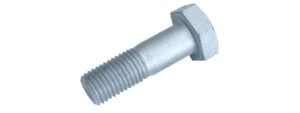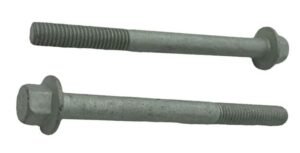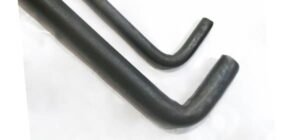Choosing the correct fastener can be a complex task, especially with the numerous options available. Stud bolts play a critical role in various industries, including construction and oil & gas, providing unmatched strength and reliability. In this article, I will outline the essential features and applications of stud bolts, helping you make informed decisions for your next project.
What Are Stud Bolts?
Stud bolts are a type of fastener that doesn’t have a head like regular bolts. Instead, they are fully or partially threaded along their length, with threads on both ends. This design allows nuts to be secured on each side, making them ideal for situations where strong and stable clamping is needed.
Stud bolts are versatile. They’re designed for high-stress environments, such as flanges, heavy machinery, and industrial setups. Their primary purpose? To provide consistent tension, ensuring secure connections between components.
Different Types of Stud Bolts
There’s more than one type of stud bolt, and each has a unique purpose. Here’s a quick rundown of the most common ones:
- Fully Threaded Stud Bolts
These have threads running the entire length, which allows for maximum engagement of nuts on both ends. Ideal for machinery and construction where precise clamping is necessary.

- Double-End Stud Bolts
Featuring threads on both ends with an unthreaded shank in the middle, these bolts are perfect for flange connections and pipelines. The unthreaded portion helps align the connected parts more accurately.

- Tap-End Stud Bolts
These bolts have a threaded end and a reduced-diameter section (the tap end) designed to be inserted into tapped holes. They’re great for confined spaces where you need a secure fit but have limited room for a standard bolt.

- Weld Stud Bolts
These bolts are designed for welding. One end is welded to a surface, and the other has threads for a nut. They’re common in structural applications where welding is required for additional stability.
Each of these bolts serves a specific need. Depending on the requirements of your project, you may need one or more of these types.
What Materials Are Stud Bolts Made From?
When it comes to material choices, stud bolts offer a wide range depending on the application and environment. Let’s go over the most popular materials used:
- Carbon Steel Stud Bolt
Carbon steel is the most common material used for stud bolts because of its strength and affordability. However, it’s prone to corrosion, so protective coatings like galvanization are often applied to extend its life. - Stainless Steel Stud Bolt
Stainless steel double end threaded stud screw bolt, especially grades A2 (304) and A4 (316), is prized for its excellent corrosion resistance. Grade 304 is suitable for general use, while Grade 316 is often used in harsh environments, such as marine and chemical industries. - Alloy Steel Stud Bolt
Alloy steel contains elements like chromium or molybdenum to enhance strength and heat resistance. These bolts are ideal for high-stress environments like oil rigs, where temperature and pressure are extreme. - Superalloys Stud Bolt
Materials like Inconel or Monel are used for stud bolts in extremely harsh conditions. These nickel-based alloys can withstand high temperatures and resist corrosion, making them perfect for aerospace or chemical processing applications.
With such a variety of materials, choosing the right one depends on your specific environment. Whether it’s heat, moisture, or chemicals, there’s a material out there to meet your needs.
Key Features of Stud Bolts
Stud bolts are popular in industries like oil & gas, construction, and manufacturing for good reasons. One key feature is thread engagement. With threads on both ends, stud bolts provide consistent tension, which is important for safety and durability, especially in high-pressure environments.
Another great feature is the wide material options. Stud bolts come in various materials, from carbon steel to high-performance alloys like Inconel. This makes them suitable for many environments, whether you face high heat, corrosion, or heavy machinery.
Lastly, stud bolts offer versatility. They work with different types of nuts, making them adaptable for custom machinery or complex structures.
Where Are Stud Bolts Used?
Where are stud bolts most commonly used? Here are just a few examples:
- Construction: In steel structures, stud bolts connect beams and columns, ensuring strong and stable joints.
- Petrochemical Industry: With high-pressure systems, stud bolts are essential for securing components that need to withstand intense forces.
- Automotive and Marine: They’re often used in exhaust systems, hull assemblies, and engine components.
- Industrial Machinery: These bolts anchor heavy equipment, providing the necessary support for safe operation.
Conclusion
Stud bolts might seem like just another type of fastener, but their importance in industrial applications cannot be overstated. They offer consistent tension, reliable material options, and versatile uses across various industries. Whether you’re in construction, petrochemicals, or manufacturing, understanding which stud bolt to use can make all the difference in the success of your project.
At Hengrui, we specialize in providing high-quality stud bolts tailored to meet the demands of your specific industry. Don’t hesitate to reach out if you need assistance selecting the right fastener for your next big project. We’ve got the expertise to help you make the best choice!






